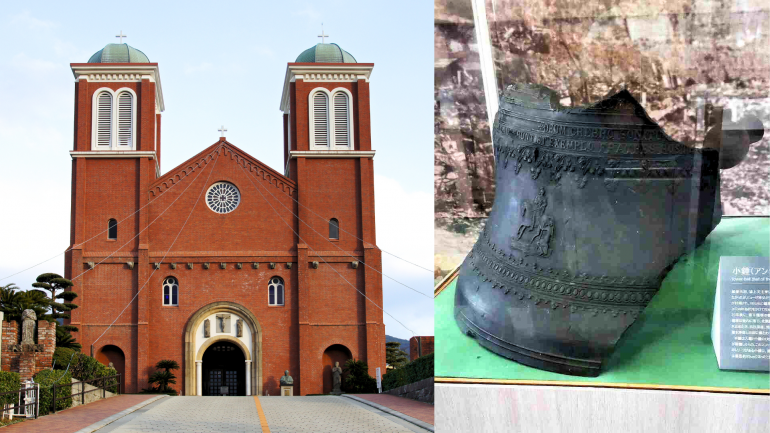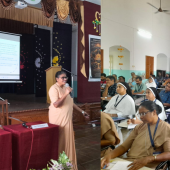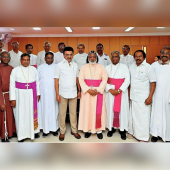Nagasaki Cathedral Bell, Destroyed by Atomic Bomb, Rings Again as a Symbol of Peace

Eighty years after the atomic bombing of Nagasaki, a powerful new symbol of peace and reconciliation will ring through the air. The bell of the historic Urakami Cathedral, destroyed in the U.S. bombing on August 9, 1945, has been rebuilt, and it will toll once more to mark the moment of devastation.
The bell was swept away when the atomic bomb leveled much of Nagasaki, killing tens of thousands and turning buildings and lives into ashes. The Urakami Cathedral, located near the epicenter, was decimated. When the church was later rebuilt, the bell tower remained empty.
As reported by Fides, thanks to the efforts of American Catholics who raised funds for its restoration, a new bell has been donated to the cathedral. It was installed in the vacant tower and will ring for the first time on August 9, 2025, at precisely 11:02 a.m., the exact time the bomb exploded over Nagasaki.
In an interview with Fides, Archbishop Peter Michiaki Nakamura of Nagasaki said the bell’s ringing “will be a reminder of the victims and a call for peace.” He added that the fact that this bell, originally destroyed by an American-made bomb, has been rebuilt and donated by U.S. citizens is a “concrete sign of forgiveness, reconciliation, and hope.”
“This bell bears witness to the possibility of walking together toward the realization of peace in the world,” he said.
Speaking to Fides, the Archbishop Nakamura noted that 2025, designated as a "Year of Hope," also marked the 80th anniversary of the end of World War II and the atomic bombing should serve as “an opportunity to reflect once again on the importance of preventing war, praying for peace, and advocating for the abolition of nuclear weapons, their use, production, and possession.”
While many in Japan oppose war in principle, Nakamura pointed out that public opinion may shift if the country were ever attacked. “That is why,” he said, “it is essential to start now in building relationships of mutual trust and cooperation.”
In a hopeful move toward global solidarity, the Diocese of Nagasaki and its counterpart in Hiroshima have joined hands with the Dioceses of Seattle and Santa Fe in the United States, two American cities with historical and ongoing ties to nuclear weapons. The collaboration aims to advocate jointly for a world free of nuclear arms.
Archbishop Nakamura told Fides he sees these relationships as vital in the shared mission for global peace: “I think it is very important to foster this kind of connection with others.”
As the newly cast bell prepares to ring across Nagasaki once again, its sound will carry more than echoes from the past. It will toll for peace, reconciliation, and a renewed commitment to ensuring such tragedy never happens again.
Radio Veritas Asia (RVA), a media platform of the Catholic Church, aims to share Christ. RVA started in 1969 as a continental Catholic radio station to serve Asian countries in their respective local language, thus earning the tag “the Voice of Asian Christianity.” Responding to the emerging context, RVA embraced media platforms to connect with the global Asian audience via its 21 language websites and various social media platforms.











